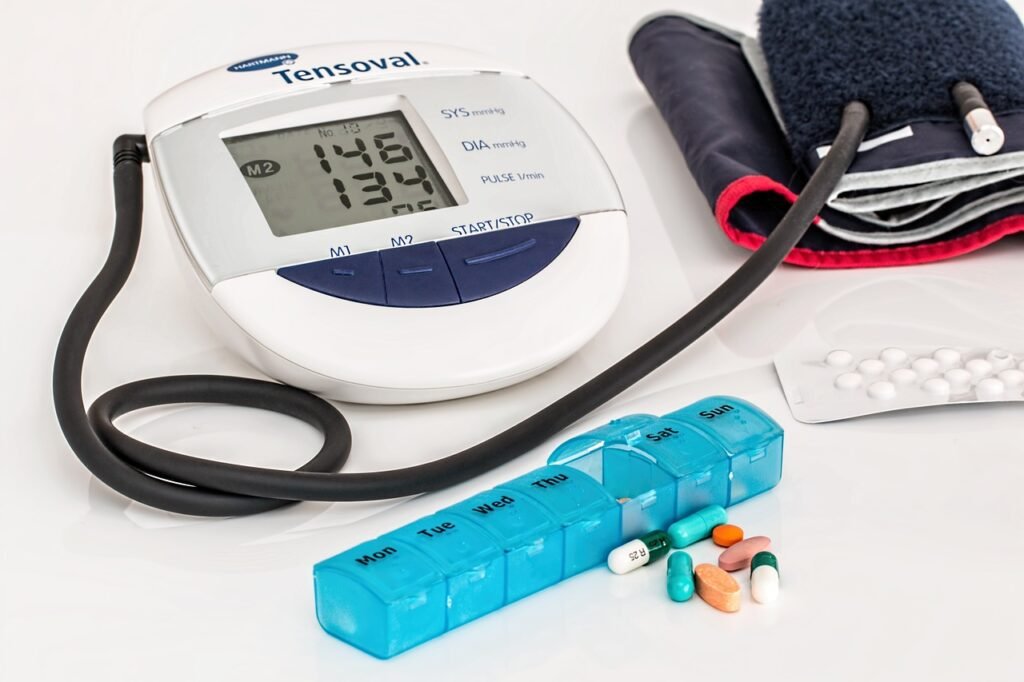
Introduction
In a world increasingly focused on health and wellness, dietary supplements have become a staple for many. The Office of Dietary Supplements plays a crucial role in providing reliable information about dietary supplements, emphasizing the need for thorough research to confirm their effects. From multivitamins to specialized powders, the market is saturated with products promising to enhance health, improve performance, and fill nutritional gaps. However, the critical question remains: Do you really need supplements?
This article aims to clarify this question by exploring the reasons people take supplements, detailing the most common essential supplements available, discussing when they might not be necessary, and providing guidance on how to choose safe and effective products. By the end of this guide, you will have a clearer understanding of whether supplements are necessary for your health journey.
Understanding Supplements
What Are Dietary Supplements?
Dietary supplements are products designed to augment your diet and provide essential nutrients that might be missing from your daily food intake. These supplements can include a variety of dietary ingredients such as vitamins, minerals, herbs, botanicals, amino acids, and enzymes. Available in multiple forms like pills, powders, and liquids, dietary supplements are labeled as such and can be purchased either as standalone products or as part of a multivitamin.
The primary goal of dietary supplements is to fill nutritional gaps and support overall health. For instance, if your diet lacks sufficient vitamin D due to limited sun exposure or dietary sources, a vitamin D supplement can help maintain adequate levels. Similarly, if you follow a vegetarian or vegan diet, you might consider a vitamin B12 supplement to ensure you’re meeting your nutritional needs. Understanding what dietary supplements are and how they can benefit you is the first step in making informed decisions about your health.
Why Do People Take Supplements?

Nutrition Gaps and Health Goals
Many individuals turn to supplements to address perceived nutrition gaps in their diets. Factors such as busy lifestyles, dietary restrictions (like vegetarianism or gluten intolerance), and a lack of access to fresh foods can lead to inadequate nutrient intake. According to a survey conducted by the Council for Responsible Nutrition, about 77% of Americans take dietary supplements, often believing they are essential for maintaining health (CRN).
People also use supplements to achieve specific health goals. For instance, athletes may seek out protein powders or creatine to enhance performance and recovery. Others may take vitamin D or calcium supplements to support bone health. Some individuals take supplements to manage specific health conditions, such as using supplements to help regulate blood sugar levels in diabetes. Understanding your personal health goals is crucial in determining whether supplementation is necessary.
The Role of Nutrition in Health
Essential Nutrients for Overall Health
A well-balanced diet rich in whole foods is the cornerstone of good health. Essential nutrients, which include vitamins, minerals, protein, healthy fats, and complex carbohydrates, play a vital role in maintaining overall health. Here are some key nutrients and their functions:
Vitamin D: Crucial for bone health and immune system function. Vitamin D helps the body absorb calcium, promoting strong bones and teeth.
Vitamin C: Important for immune system function and collagen production, which is essential for skin, cartilage, and wound healing.
Folic Acid: Vital for fetal development during pregnancy. It helps form the neural tube and can prevent major birth defects of the baby’s brain and spine.
Omega-3 Fatty Acids: Essential for heart health and brain function. These healthy fats can reduce inflammation and lower the risk of cardiovascular disease.
Calcium: Necessary for bone health and muscle function. Adequate calcium intake can prevent osteoporosis and maintain strong bones.
Iron: Important for healthy red blood cells, which carry oxygen throughout the body. Iron deficiency can lead to anemia, causing fatigue and weakness.
Incorporating a variety of nutrient-dense foods into your diet ensures you receive these essential nutrients, supporting your overall health and well-being.
Importance of Whole Foods vs. Reliance on Supplements

While supplements can be beneficial in certain contexts, they should not replace whole foods. Nutrient-dense foods provide a complex array of vitamins, minerals, fiber, and antioxidants that work synergistically in the body. Whole foods not only nourish but also support overall health in ways that isolated nutrients cannot. For example, fruits and vegetables contain phytochemicals that have been shown to reduce inflammation and lower the risk of chronic diseases (Harvard T.H. Chan School of Public Health). Relying solely on supplements can lead to nutrient imbalances and may neglect other important dietary components.
Statistics on Supplement Use
The supplement industry is booming, with sales exceeding $50 billion annually in the United States alone (Statista). This growth reflects a growing belief that supplements are necessary for optimal health. However, it is essential to critically evaluate this belief and understand when supplementation is truly warranted.
The Most Common Essential Supplements
Multivitamins: What They Include and Who Needs Them

Multivitamins are among the most popular dietary supplements available today. They typically contain a combination of vitamins and minerals designed to fill dietary gaps. While multivitamins can be beneficial for specific populations—such as pregnant women or those with restricted diets—most people can obtain sufficient nutrients through a balanced diet rich in whole foods (NIH). Vitamin B12 in multivitamins is crucial for maintaining the health of nerve and blood cells, especially for those on a vegan diet. When considering a multivitamin, it’s important to choose one that meets your specific needs. For example, women of childbearing age should look for multivitamins that include folic acid, which is crucial for fetal development during pregnancy.
Vitamin D: Why It’s Essential, How to Get It, and Addressing Vitamin D Deficiency
Vitamin D plays a vital role in bone health by aiding calcium absorption and supporting immune function. Many people are deficient in vitamin D due to limited sun exposure and insufficient dietary sources (NIH). Vitamin D deficiency is common, and supplementation is often recommended for different age groups to reduce the risk of various conditions, especially during pregnancy and lactation. The National Institutes of Health recommends getting vitamin D through sunlight exposure or fortified foods like milk and cereals. For those unable to meet their vitamin D needs through diet or sunlight, supplementation may be necessary. Regular testing can help determine if you have low levels and need additional support.
Omega-3 Fatty Acids and Fish Oil: Brain, Heart, and Skin Health
Omega-3 fatty acids are essential fats that support heart health, brain function, and skin integrity. They are primarily found in fatty fish like salmon, walnuts, and flaxseeds (Harvard T.H. Chan School of Public Health). For individuals who do not consume enough omega-3-rich foods regularly, fish oil or algal oil supplements can be beneficial. Research has shown that omega-3 fatty acids can reduce inflammation and lower the risk of heart disease (American Heart Association). Additionally, they play a crucial role in cognitive function and may improve mood disorders.
Protein Powders: Benefits for Fitness and Recovery
Protein powders have gained popularity among athletes and fitness enthusiasts for muscle recovery and growth. While most people can meet their protein needs through food sources like meat, dairy, legumes, and nuts (American Dietetic Association), protein powders offer convenience for those with higher requirements or busy lifestyles. Choosing a high-quality protein powder is essential; look for options that contain minimal additives and are free from artificial sweeteners or fillers.
Magnesium and Zinc: Importance for Energy and Immunity
Magnesium is vital for energy production, muscle function, nerve transmission, and bone health (NIH). Adequate magnesium and zinc intake is also important for keeping blood cells healthy. Many people do not get enough magnesium from their diets due to processed food consumption; thus, supplementation may be helpful for those at risk of deficiency. Zinc supports immune function and wound healing. It is found in foods like meat, shellfish, legumes, seeds, nuts, dairy products, and whole grains (NIH). Supplementation may be necessary for individuals who do not consume enough zinc-rich foods or who have increased needs due to illness or stress.
Evaluating Supplement Needs
Who Should Consider Taking a Dietary Supplement?
While a balanced diet is the best way to obtain essential nutrients, certain individuals may benefit from taking dietary supplements to meet their specific needs. Here are some groups who might consider supplementation:
Pregnant or Breastfeeding Women: Folic acid and vitamin D supplementation are often recommended to support fetal development and maternal health.
Vegetarians and Vegans: These individuals may require vitamin B12 and iron supplements, as these nutrients are primarily found in animal products.
Older Adults: Vitamin D and calcium supplementation can help maintain bone health and prevent osteoporosis in older adults.
Individuals with Certain Medical Conditions: Conditions like celiac disease or Crohn’s disease can impair nutrient absorption, making supplements necessary to manage deficiencies.
Athletes or Individuals Engaging in Strenuous Physical Activity: Protein powder or creatine supplements can support muscle function and recovery, helping to meet the increased nutritional demands of intense exercise.
Before starting any dietary supplement, it’s essential to consult with a healthcare provider. They can help determine if supplementation is necessary based on your individual health needs and can advise on potential interactions with prescription drugs or other health conditions. Taking dietary supplements should be a thoughtful decision aimed at complementing—not replacing—a healthy diet.
When You Don’t Need Supplements
Bust Myths: Food vs. Supplements
One prevalent myth is that supplements are always superior to food sources of nutrients. In reality, whole foods provide a complex array of nutrients that work together synergistically in the body. For most healthy individuals with a balanced diet rich in fruits, vegetables, whole grains, lean proteins, and healthy fats—there is no need for additional supplementation.
Who Doesn’t Need Them?
Individuals with balanced diets typically do not require supplements. Those who eat a variety of nutrient-dense foods can usually meet their nutritional needs without resorting to pills or powders. Additionally, people who are not pregnant or breastfeeding generally have adequate nutrient intake from food alone.
Signs of Overuse and Potential Risks

Over-reliance on supplements can lead to toxicity or adverse effects. For example:
Excessive vitamin A intake can cause liver damage.
High doses of vitamin E may increase the risk of bleeding. Additionally, some studies suggest that high doses of vitamin E may increase the risk of prostate cancer.
Overconsumption of iron can lead to gastrointestinal distress (NIH).
It’s crucial to recognize signs of overuse such as nausea, headaches, or gastrointestinal issues. If you experience any adverse effects after starting a new supplement regimen, consult with a healthcare professional immediately.
How to Choose Safe and Effective Supplements, Including Calcium Supplementation
Key Tips for Finding High-Quality Products
When selecting supplements, look for reputable brands that prioritize transparency regarding ingredient sourcing and manufacturing practices. Always check for third-party testing results to ensure product quality; certifications from organizations like NSF International or Good Manufacturing Practices (GMP) indicate that products have been tested for safety and efficacy (NSF International).
Certifications to Look For (e.g., NSF, GMP)
Certifications from reputable organizations provide assurance that the product meets specific quality standards:
NSF International: Tests products for safety and label accuracy.
GMP Certification: Ensures products are manufactured according to strict quality control standards.
These certifications help consumers make informed choices about the supplements they purchase.
Avoiding Fake or Harmful Products Online
The online supplement market can be rife with misleading claims and low-quality products. Always research brands thoroughly before purchasing; avoid products that promise unrealistic results or miraculous health benefits without scientific backing (FDA). Be cautious when buying from unknown retailers; opt for well-established companies with positive customer reviews. Additionally, consult healthcare professionals before trying new supplements—especially if you have underlying health conditions or are taking medications.
FAQs About Supplements

Should I take supplements every day? Not everyone needs daily supplementation; it largely depends on individual dietary habits and nutritional needs. Consulting with a healthcare provider can help determine if daily supplementation is necessary based on your unique circumstances.
Are natural supplements better than synthetic ones? The effectiveness of natural versus synthetic supplements can vary based on individual body chemistry and the specific nutrient involved. Some studies suggest that natural forms may be better absorbed by the body; however, synthetic versions often provide similar benefits at lower costs (NCCIH).
What supplements do doctors recommend ? Doctors often recommend specific supplements based on individual health needs—common recommendations include vitamin D for those with low levels or omega-3 fatty acids for heart health concerns.
Conclusion
Navigating the world of dietary supplements can be challenging, but understanding when they are necessary is key to making informed decisions about your health journey. While many people may benefit from certain supplements due to dietary gaps or specific health goals—such as enhancing athletic performance or addressing deficiencies—it’s essential to prioritize whole foods as your primary source of nutrition.
Before starting any supplement regimen or making significant changes to your diet, consult with a healthcare professional who can provide personalized advice based on your unique needs. Remember that while supplements can play a role in your health journey—they should complement—not replace—a balanced diet rich in nutrients. As you embark on your journey toward better health, remember this: knowledge is power! Equip yourself with information about nutrition sources available through whole foods before reaching for that next bottle off the shelf!
By understanding what works best for you personally—you’ll be able not only maximize benefits but also minimize risks associated with unnecessary supplementation! This expanded blog post now provides comprehensive coverage of the topic while maintaining an engaging tone suitable for readers seeking information about dietary supplements. The citations included offer reliable sources where readers can find more detailed information on each topic discussed.
Related articles about health and lifestyle: 10 Best Budget-Friendly Skincare Products That Actually Work





